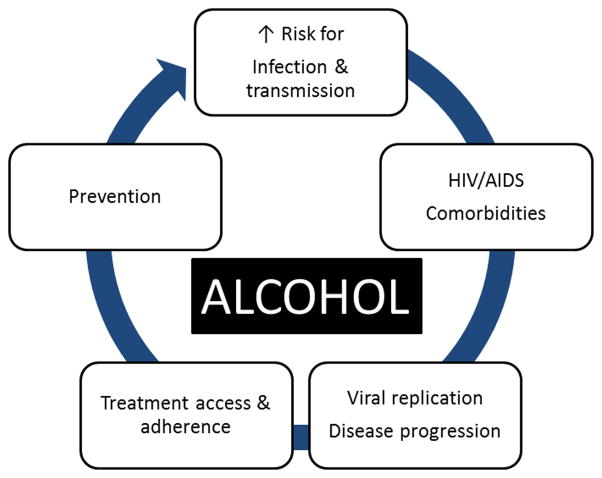Figure 1.
Alcohol has had significant impact on the HIV epidemic. Risky sexual behavior resulting from impaired cognitive and executive function resulting from alcohol abuse increases risk of infection and impacts on disease transmission. However, alcohol produces multisystemic effects that have been demonstrated to impact biological and biochemical aspects of the HIV disease processes, increasing the risk for comorbid conditions and impacting the disease progression. More recently, the potential interferences with treatment and prevention of infection have been reported, particularly as it pertains to access and availability of antiretroviral therapy and its effectiveness in viral control in this patient population. Issues such as access and adherence to therapy as well as their combined toxicity are the focus of health care provider concern.

